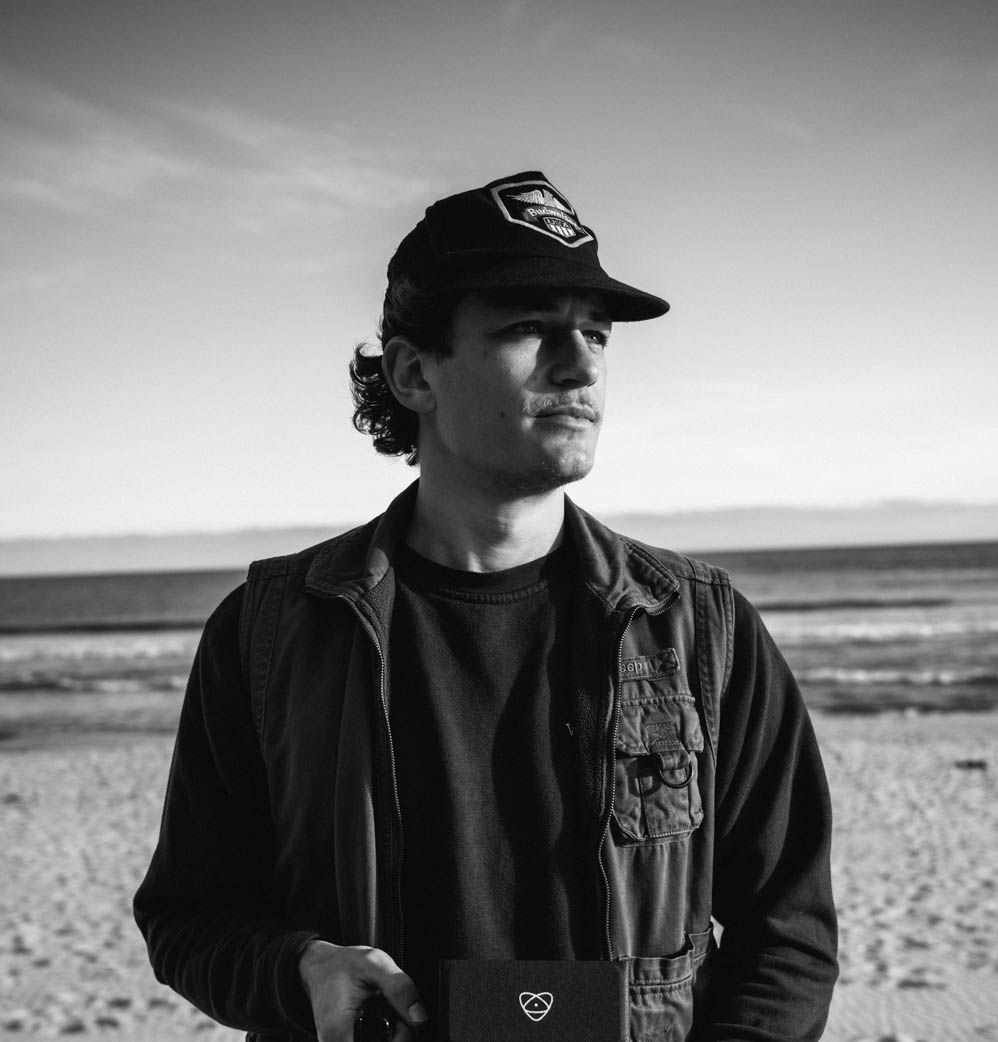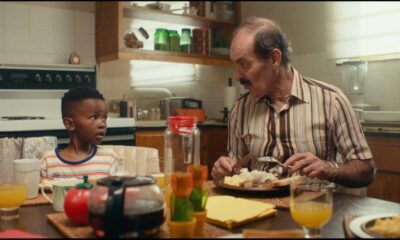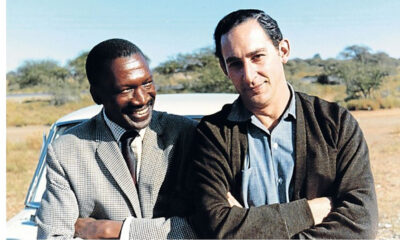
Featured Item

Amateur filmmaker lands big fish with documentary award
Published
9 months agoon
When Capetonian David Nivison (23) decided to give up his studies and try his hand at filmmaking, it was a huge risk. Never did he imagine that just three years later, he would win the Audience Choice Award at the recent Art of Documentary (AOD) One Day Documentary Film Festival for his short film Oscar: Portrait of a Photojournalist.
AOD is a leading online film academy. Nivison’s film gives a short but fascinating snapshot of the life of Guatemalan photojournalist Oscar Gutierrez, who lives in the small Cape fishing village of Kalk Bay.
This is also where Nivison has made his home. It’s on the other side of the peninsula to the Jewish hub of Sea Point, yet just like that cosmopolitan suburb, it offers a wide variety of characters and stories for filmmakers like Nivison, who graduated from the Orms Cape Town School of Photography.
Nivison’s debut documentary, Of the Sea, took an intimate look at the impact of commercial overfishing on the fishermen and women who have worked out of Kalk Bay harbour for generations, and focused on an 85-year-old lifelong fisherman by the name of Solly Solomon. “It formed part of my final assignment at Orms,” says Nivison. “I wanted to shine a light on people and individuals in the Kalk Bay fishing community who were being negatively affected by laws and tenders put in place by the government.”
Now, he has continued to spotlight this vibrant community in his award-winning film. “Oscar swims at the Dalebrook tidal pool every day. You can’t live in Kalk Bay and not be acquainted in some way with him,” says Nivison. “I was looking for a subject for the AOD Festival, and he was intriguing for me just as a character. I arranged to meet him for coffee, and told him about the festival. He was on board immediately.
“I suppose it’s a coincidence that my two documentaries have focused on individuals from the Kalk Bay community. It definitely wasn’t intended to be this way. I guess it says a lot about the community as whole. It’s rich in history, and culturally diverse. There are characters from all walks of life. You don’t have to go far to find someone with a story worth telling.”
Nivison, who was born and raised in Cape Town, attended Bishops Diocesan College in Rondebosch. His father was a TV commercials producer and owned a production company during what he would describe as the golden era of TV and commercial films in South Africa. So, Nivison was aware of film from a young age, but picked up a camera for the first time only when he was about 17.
“After I finished matric, I wasn’t 100% sure what I wanted to study. My school never really advertised the possibility of travelling or taking a gap year. I think in hindsight this is something that I would have loved to do,” he says.
“The options we were exposed to were simple – Go to UCT [the University of Cape Town] or Stellenbosch, study a commerce degree, and enter the corporate world after that. Originally, I wanted to study architecture, but the more research I did, the more I realised it wasn’t exactly for me. I thought property studies would be a good plan B, but it ended up being very commerce-based.
“When the COVID-19 pandemic came around, it gave me a lot of time to think about what I really enjoyed and what I wanted to pursue. With the support of my parents, I made the decision to pull out of my studies and pursue something with more creative stimulus. I decided to pick up a camera, and from there I’d say the rest is history.
“To have received the Audience Choice Award among many other beautiful and unique films really validated my decision to pursue filmmaking as a full-time career,” he says. “It was an absolute joy to film and cut this piece together. Shining a small light on the abundant life of Oscar was such an incredible privilege, and I hope this film did justice in capturing his joyful, quirky, and effervescent nature. Such a zest for life is truly hard to come by.”
During the pandemic, Gutierrez decided to scan a lifetime’s worth of photography negatives so that his legacy could live on through his images. Nivison’s film gives a glimpse into this process, and a day in the life of Gutierrez. The entirety of the film was shot in a single day, which included Nivison getting into the icy ocean to film Gutierrez taking his daily morning swim.
“He has led a fascinating life,” says Nivison. “He also wants to leave a tangible legacy, which is something I can relate to, I suppose. The biggest challenge of making the film was definitely the time frame. We had one day so shoot the entirety of the film and it was a one-man crew. We shot morning to night, and squeezing in everything was quite a big ask.”
Nivison says he was “completely shocked” when he was officially selected as a finalist in the festival, “let alone winning the award! I felt proud to have received this award, especially because it was the festival attendees who decided that mine stood out to them.”
Where to from here? “I’m just building up my reel and gaining experience in the industry. I do a lot of editing work, and this has been my bread and butter recently. I want to experience as many aspects of the industry as possible and gain more experience and knowledge. In terms of Oscar, I’m still trying to figure out the best way to market and leverage it. My greatest aspiration is to shoot short dock-style films for brands and clients that I believe in and have an affinity with. Anything related to the ocean is a win for me.”
He doesn’t feel like he’s in a position to give advice to other aspiring filmmakers, although he says “passion projects are a really great way to produce work that you enjoy. It’s probably the best way to build up your reel when you just start off – that’s how I did it at least. Finding mentors and people in the industry that you can learn from is also beneficial.”
Nivison says he’s proud of his Jewish upbringing and heritage. “As Jewish people, we understand the importance of community. This could possibly be why I’ve always chosen subjects who really value the communities that surround them,” he says.










